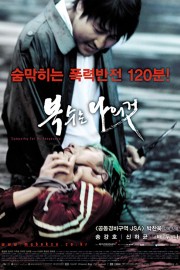Sympathy for Mr. Vengeance
South Korean director Chan-wook Park changed the landscape of the thriller as we know it in his revenge trilogy, starting with “Sympathy for Mr. Vengeance.” Of course, the acknowledged masterpiece in the unofficial trilogy is “Oldboy,” but for my money, “Mr. Vengeance” is just as good, and maybe even a little better. The reason is because of the genuine compassion we feel for the main characters.
The film centers around an impossible dilemma: a brother, who is deaf, cannot speak, and working a menial job at a factory to take care of his ill sister, is trying in vein to get her the kidney she needs to survive. After he tries the black market, gets cheated out of all his money, and is fired from his job, a donor miraculously appears through the hospital. Uninsured, and now, without the money necessary, he has five days to come up with the money. So he and his sister kidnap the daughter of his former employer. However, they get more than they bargained for.
All three of Park’s revenge movies have a certain degree of cinematic daring, but arguably, “Mr. Vengeance” has more than any of them. Because of the nature of his main character (Ryu, played by Ha-kyun Shin), Park uses silence and images to tell his story more than words, and it’s powerfully effective. Some of the most ingenious shots show Ryu and his sister (Ji-Eun Lim) next to one another on the bed in their apartment. They are both looking towards the camera, and the sister is talking. How is Ryu understanding? There is actually a mirror in front of them, and the masterful part is how Park doesn’t call attention to it; we just come to accept it as part of the character’s reality.
It’s the twisted narrative daring that Park displays in this film, however, that makes the sudden impact he’s had on cinema in the past decade all the more logical. (Spoilers to follow.) After the initial demand for ransom from the father, things spiral, destructively, out of control. Ryu’s sister kills herself and, while Ryu is burying her by a river they played at when they were kids, the daughter accidentally drowns. Now, both Ryu and the father have lost those they care about most, setting up the final hour of the film, in which we are forced to have compassion not just for the father who has lost his daughter, but the brother who has lost his sister. We want the pain to go away for both, and that both find themselves victims of tragic circumstance. Neither deserves to go through what they are experiencing, but because of an unfortunate mistake, we know peace will be almost impossible for both of them.
Watching the film for the first time in several years, I forgot how difficult it was to distinguish Ryu’s sister with his girlfriend (played by Doona Bae, who was in last year’s “Cloud Atlas”), so, when the girlfriend showed up after the sister dies, I was surprisied. That said, it’s Park’s unsettling storytelling (a hallmark of not just his revenge trilogy, but also his haunting vampire thriller, “Thirst,” and the segment he directed in “3 Extremes”) that have made him one of the most popular filmmakers in world cinema for geeks everywhere. This month, he brings his blend of mirth and the macabre to his first American feature, “Stoker,” and needless to say, I’m intrigued to see in Hollywood lets him work his uncompromising magic.










